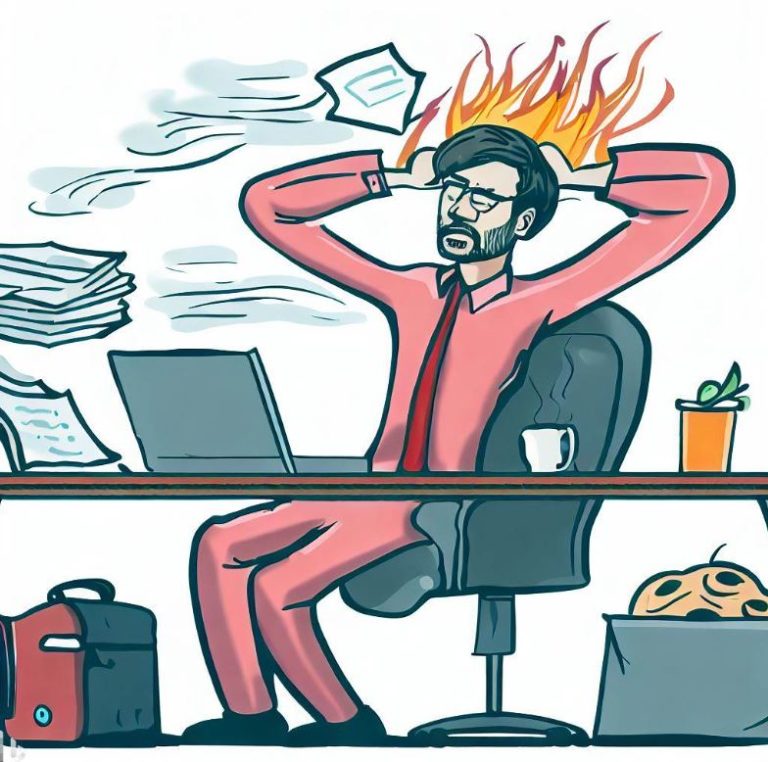Legal Considerations For Starting A Side Hustle
- Time Management Strategies For Side Hustlers - June 22, 2023
- Side Hustles Suitable For Introverts - June 22, 2023
- Top Side Hustles For Freelancers In 2023 - June 22, 2023
Introduction to Side Hustles
Side hustles are becoming hugely popular. They give people the chance to explore interests and be financially independent. Forms include freelance work and selling handmade goods online. Technology has made it easier to start a side hustle. The internet provides a huge market, so individuals can reach customers from anywhere.
Engaging in a side hustle is also personally rewarding. It’s a great outlet for creative expression and skill development. Take Jane, for example: a full-time marketing exec who started an online bakery. She had a talent for it – encouraged by friends and family – and it soon became a successful business!
Legal loopholes can be like treasure chests – just dig deep enough and you may find them. But be careful of booby traps!
Understanding the Legal Landscape
To understand the legal landscape surrounding side hustles, delve into the sub-sections on differentiating between side hustles and full-time businesses. Explore the unique legal considerations for each, providing you with a clear understanding of the legal requirements and obligations that come with pursuing a side hustle versus running a full-time business.
Differentiating Between Side Hustles and Full-time Businesses
Understanding the Legal Landscape can be tough. Especially when trying to Differentiate Between Side Hustles and Full-time Businesses. To help clarify, let’s explore the key characteristics of each.
Here’s a table outlining the main differences:
| Characteristics | Side Hustles | Full-time Businesses |
|---|---|---|
| Time Commitment | Limited hours/week | Full-time dedication |
| Income Potential | Supplementary income | Primary source |
| Legal Structure | Often informal | Formal business entity |
| Tax Obligations | Side gig filings | Comprehensive tax filings |
| Growth Potential | Limited expansion | Scaling & growth plans |
Side hustles take limited time commitments. They’re usually a supplementary source of income. Full-time businesses require full-time dedication and often have more structured legal setups like forming a sole proprietorship or registering an LLC.
Tax obligations for a side hustle may involve extra filings. Full-time businesses have more comprehensive tax obligations and may need ongoing accounting support.
Lastly, side hustles often have limited room for expansion due to time. Full-time businesses focus on scaling and have long-term growth plans.
To make the most out of your side hustle or transition into a full-time business successfully:
- Set clear goals.
- Research legal requirements.
- Seek professional advice.
By distinguishing between side hustles and full-time businesses, you can maximize success. Adapt your approach based on the unique characteristics and keep legal considerations in mind.
Tax Considerations for Side Hustles: Uncle Sam always finds a way to make you regret that extra cash!
Tax Considerations for Side Hustles
To ensure smooth sailing in the world of side hustles, equip yourself with a solid understanding of the tax considerations at play. In this section, we explore the specific area of tax considerations for side hustles. From registering your side hustle for taxes to the associated financial implications, we’ll delve into the necessary knowledge to navigate this aspect of your entrepreneurial venture.
Registering Your Side Hustle for Taxes
Kicking off a side hustle can be thrilling, and can bring in extra cashflow and make your business dream come true. However, you must ensure you follow tax laws and regulations. Registering your side hustle for taxes is vital to stay organized, dodge penalties, and get the most deductions. Here’s a 5-step guide:
- Figure Out Your Business Structure: Firstly, you need to define the legal structure of your side hustle. Common choices are sole proprietorship, partnership, limited liability company (LLC), or corporation. Each structure has different tax impacts, so choose the one that suits your business best.
- Get an Employer Identification Number (EIN): An EIN is an individual identifier given by the IRS to businesses. If you don’t have any employees, sole proprietors may not need an EIN, but it can still be helpful to separate personal and business finances. Partnerships and other entities usually require an EIN.
- Register with State and Local Authorities: Depending on your side hustle, you may need to register with state or local authorities. This changes based on where you are and what industry you’re in. Check with your local government or small business administration office to discover if there are any registrations or licenses needed.
- Keep Accurate Records: Keeping accurate records of all income and expenses related to your side hustle is key for taxes. This includes invoices, receipts, bank statements, and any other documents. Use accounting software or hire a skilled bookkeeper to make sure your records are thorough and orderly.
- File Regularly: Lastly, make sure to file your taxes regularly and on time. Depending on your side hustle’s structure, you may need to file quarterly estimated taxes or yearly returns. Consult a tax expert or use software made for small businesses to guarantee you’re meeting all required reporting requirements.
To go a step further, stay informed about changes in tax laws that may affect your side hustle. Think about consulting a tax advisor who can give personalized advice based on your situation. By registering your side hustle for taxes and following the rules, you’ll make sure you have long-term success while decreasing any potential tax issues.
Legal Structures for Side Hustles
To ensure legal compliance in your side hustle, consider the various legal structures available. Opting for a sole proprietorship, partnership, or limited liability company (LLC) offers distinct solutions. Explore the benefits and implications of each structure to make an informed choice that aligns with your goals and safeguards your business endeavors.
Sole Proprietorship
A sole proprietorship is a business structure for side hustles. Owned and managed by one person, it provides advantages plus considerations.
- Flexibility: You have complete control over decisions. Easily make changes or adapt to market needs, no need to consult.
- Tax Benefits: Report business income and expenses on your personal tax return. This simplifies and could lead to lower taxes.
- Personal Liability: Full control, but also full responsibility for debts and legal issues. Personal assets could be at risk if the business has financial difficulty.
Plus, setting up a sole proprietorship is easy and cheap compared to other business structures. Note: It has no separate legal existence from its owner. Pro Tip: Protect yourself from liability with insurance coverage for business activities. Partnerships: Legally binding yourself to someone who can’t commit to weekly group brunches.
Partnership
Partnerships are a legal structure that allow two or more people to have ownership and shared responsibilities in a venture. Let’s take a look at the different types:
- General Partnership: All partners have equal responsibility and liability.
- Limited Partnership: There are general partners with unlimited liability and limited partners with limited responsibility.
- Limited Liability Partnership (LLP): Every partner has limited liability.
- Joint Venture: A short-term partnership for a specific project.
Partnerships have many benefits like shared decision-making and resources. To avoid issues, it’s critical to have clear agreements and understandings from the start.
Did you know: Around 25% of businesses in the U.S. use this structure, according to the Small Business Administration (SBA). Also, an LLC is a great way to protect your side hustle, even if it causes more damage than entertainment.
Limited Liability Company (LLC)
The Limited Liability Company (LLC) is a flexible business structure. It offers owners, known as members, limited personal liability for business debts and obligations. Here are some key features of an LLC:
| Limited Liability |
|---|
| – Personal assets are protected from business liabilities. |
| – Creditors cannot pursue personal assets to satisfy company debts. |
| Pass-Through Taxation |
|---|
| – An LLC does not pay taxes at the entity level. |
| – Profits and losses are passed to the members’ personal tax returns. |
| – This avoids double taxation. |
| Flexible Management |
|---|
| – An LLC can be member-managed or manager-managed. |
| – Members have the flexibility to run the business themselves. |
| – They can also appoint managers to handle day-to-day operations. |
Setting up an LLC has several advantages. These include protecting personal assets and optimizing tax savings. To make the most of an LLC, it’s important to separate personal and business finances, comply with legal and regulatory requirements, and consult with a business law specialist. By doing this, you can create a solid legal structure, while protecting your personal assets and optimizing your tax liabilities. Protect your side hustle ideas like a mama bear – there are patent predators lurking around!
Intellectual Property Protection
To ensure proper Intellectual Property Protection, address the sub-sections of Trademarks, Copyrights, and Patents in your side hustle. Understand the significance of each aspect to safeguard your creative work, brands, and inventions.
Trademarks
Look at the table below! It shows some popular trademarks and their companies:
| Trademark | Company |
|---|---|
| Nike Swoosh | Nike |
| Apple logo | Apple Inc. |
| McDonald’s arches | McDonald’s |
These trademarks are connected to their brands and make them stand out from the competition. Registering trademarks provides legal protection and helps build customer loyalty.
To make the most of your trademarks, remember these tips:
- Do your research before selecting a trademark to make sure it’s unique.
- Apply for trademark registration to prove ownership.
- Monitor for any potential infringers.
- Use the trademark symbols (® or â„¢) with the registered trademarks to show they’re protected.
Adhering to these suggestions can make your trademarks even more valuable and protect your brand from unauthorized use. The only time stealing is allowed is when it has to do with my heart or a great song – so make sure you follow copyright laws!
Copyrights
True copyright laws protect literary, artistic, musical, and dramatic works, plus photographs and software. The length of protection varies by the work type and the country it was created in. For example, copyright lasts for life of the author plus 70 years in the USA.
A true story highlights the importance of copyright: Lisa, a famed novelist, wrote a smash-hit book. Soon after, she found out someone had plagiarized her work and published it as their own! Copyright laws enabled Lisa to take legal action and win the case. She got damages for the infringement.
Knowing and respecting copyright laws is crucial for all creative types. It safeguards their intellectual property and encourages innovation! But remember: if Apple can sue Samsung over rounded corners, who knows what else they can sue you for!
Patents
A patent grants the inventor legal protection over their innovation. No one can make, use, or sell the same invention without permission. This system promotes innovation by providing inventors with incentives. It also benefits society by encouraging research and development in various fields. Patents enable inventors to share their inventions, contributing to scientific knowledge and technological progress.
The concept of patents has been around for centuries. Different countries have their own patent systems to protect intellectual property and foster creativity. Patents play a crucial role in ensuring fair competition in the global marketplace.
Legal contracts and agreements are like chocolates; you never know which one will have a ruinous secret clause.
Legal Contracts and Agreements
Legal Contracts and Agreements are crucial. For instance, it’s vital to specify ownership rights for any intellectual property you create. Get help from a lawyer specialized in business law to craft customized contracts tailored for you. Don’t miss out on this: it’ll ensure smooth running of your side hustle and protect you. Start today!
Plus, insurance coverage is like a safety net – if you fall flat during your side hustle, it’ll help.
Insurance Coverage for Side Hustles
Side hustles can be thrilling, but need legal precautions. One of these is insurance coverage – essential to shield yourself and your business from potential risks.
General liability policies offer protection for any physical harm or property damage while running your side hustle. It can avoid lawsuits and pricey legal fees.
Professional liability insurance, also known as errors and omissions (E&O) insurance, is recommended if you supply advice or services. It shields you in case a customer loses money due to your negligence or mistakes.
Product liability insurance is an option if you’re selling products. It covers any injury or property damage caused by your products. It can also pay for legal costs and settlements.
Always review every policy’s terms and exclusions before selecting one. It may not be sufficient for your side hustle.
Engaging an experienced insurance agent with knowledge of small businesses or entrepreneurial ventures is recommended. They can recommend the best coverage for your needs.
Regulatory Compliance and Permits
To ensure regulatory compliance and obtain the necessary permits for your side hustle, delve into the sub-sections of business licenses, permits, and certifications. Understand the legal requirements and any specific licenses needed to operate your business successfully while adhering to relevant regulations.
Business Licenses
It’s key to comprehend the permits and authorizations needed for running a business lawfully, to understand “Business Licenses”. These licenses are proof that you follow regulations and laws for specific places or industries. Let’s look into the details.
Here’s a breakdown of some regular business licenses:
| License Type | Description | Requirements |
|---|---|---|
| General Business License | Covering basic operations, like sales and marketing. | Could need registering with local authorities and paying fees. |
| Professional License | For professions needing special skills like doctors, lawyers, engineers, etc. | Education, training, certification, exams might be required. |
| Health Permit | For businesses dealing with food preparation or handling. | Food safety training, inspections, health codes must be adhered to. |
| Alcohol License | For places selling or serving alcoholic beverages. | Age limits for staff handling alcohol, and liquor control regulations to follow. |
| Environmental Permit | For companies impacting the environment through waste disposal or emissions. | Show measures taken to reduce environmental impact. |
| Zoning Permit | Restricting land use based on location and type of business. | Make sure your business activities fit zoning regulations in your area. |
Knowing these nuances can help you decide what licenses are key for your industry and area.
To get licenses easily:
- Research: Look into licensing requirements related to your field before you start anything. This ensures compliance from the start.
- Get Professional Advice: Talk to legal advisors or permit experts who know how to move in legal systems and get suitable licenses quickly.
- Stay Informed: Regulations change now and then; so, stay up-to-date with any changes in licensing requirements for your business.
- Allow Time: Begin the licensing process early to avoid delays or problems once you open.
By following these tips and realizing the importance of business licenses, entrepreneurs can work within legal limits while going after their entrepreneurial dreams. Remember, following regulatory compliance keeps a good rep and decreases legal risks for long-term success.
Permits and Certifications
There’s a range of permits and certifications, such as Business License, Environmental Permit, Health and Safety Certificate, Building Permit, and Professional License. Plus, there are industry-specific ones, like for restaurants, bars, and medical facilities. These make sure businesses follow regulations, maintain quality, and look after the public safety.
It is important to remember that the process of getting these permits and certifications can be tricky. Not being compliant can have serious consequences, like fines, penalties, or the business having to close.
Fun Fact: Did you know that the oldest known regulations are from ancient Mesopotamia? The Code of Hammurabi (1754 BC) had rules for society. Source: Ancient History Encyclopedia. Get legal advice like a boss: Hire a lawyer to use ‘objection!’ until your opponents give up and settle.
Handling Legal Disputes
To handle legal disputes in starting a side hustle, turn to mediation and arbitration or consider small claims court as solutions. These sub-sections offer avenues for resolving conflicts and seeking justice in a more efficient and accessible manner.
Mediation and Arbitration
Mediation and arbitration can be used to settle disputes. A neutral third party facilitates communication and helps find common ground. These methods are faster than lengthy litigation. Plus, mediation gives parties control over the outcome. Arbitration is like a mini-trial and the decision is final. Both have advantages; mediation lets parties keep relationships and arbitration offers confidentiality.
One example of successful mediation and arbitration is Nelson Mandela’s role in ending apartheid in South Africa. He used these techniques to achieve peace between different factions. Compromises were made and political transformation occurred.
Small claims court is also an option to settle disputes, like when your neighbor’s lawn gnome insults your fashion sense.
Small Claims Court
Small Claims Court can be a great option when dealing with legal disputes over a small amount of money. Before proceeding, check if your case meets the court’s requirements. Then, fill out the necessary documents and submit them, including evidence and details of the dispute. In some cases, you’ll have to attend mediation first. Be ready to discuss potential solutions. If mediation fails or isn’t necessary, your case will go to trial. Present your evidence and arguments clearly to the judge. It’s essential to approach this seriously and professionally for the best outcome.
Did you know? You have a 60-70% chance of getting a favorable judgment if you file a claim in Small Claims Court.
Conclusion
Side hustles are exciting and promising, but they come with legal responsibilities. It’s essential to consider the legalities to have a smooth, compliant business. Business structures, such as sole proprietorship or LLC, protect personal assets and provide tax advantages. Registering trademarks or copyrights safeguards intellectual property from infringement.
Tax obligations must be understood to avoid trouble. Depending on the side hustle, you may need an EIN or file self-employment taxes. Staying updated on local, state and federal regulations prevents unexpected consequences. Liability issues should not be overlooked. Insurance coverage can protect from lawsuits or damages. Consulting an attorney specialized in business law can minimize risks.
This article is general guidance. It’s recommended to get professional or tailored legal advice. 36% of Americans have side hustles to supplement their income streams.







